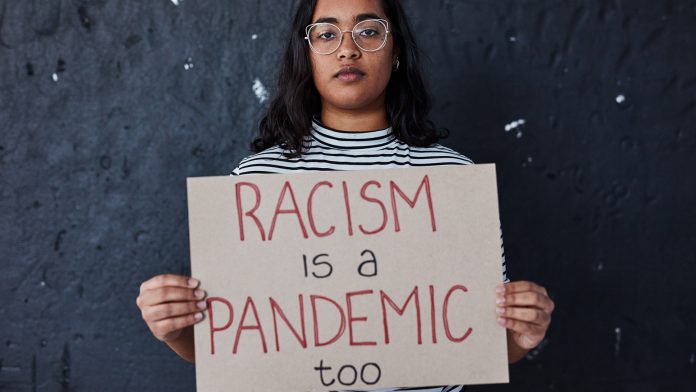
Health outcomes and mortality are significantly worse for people living in communities with higher levels of racial discrimination, a new US study suggests.
A study published by the American Psychological Association (APA) has elucidated the vast impacts of racial discrimination on health outcomes, finding that living in areas with elevated racial prejudice can increase the chances of heart disease, mental health problems and contributes to higher overall mortality. The team performed a systematic review of 14 papers that utilised data from Google, Twitter and a range of big-data sources to explore how racism influences health.
Eli Michaels, MPH, a doctoral candidate at the University of California and lead author of the study, commented: “Racism is gaining recognition as a fundamental driver of health inequities. Leveraging big data to capture area-level racial prejudice is one innovative approach to measuring the overall racial climate in which people live, work, play and pray. The studies included in this review revealed that living in an area with high levels of racial prejudice may harm health and widen racial health inequities.”
The research is published in Health Psychology.
Impacts of racial discrimination on health
Researchers compiled a plethora of data sources to illustrate the scale of and measure community-level and included millions of data points from extensive surveys, internet searches and social media. Three of the studies examined data from Google Trends on the prominence of racial slurs; four studies analysed Twitter data on tweets that included negative sentiments to people of colour; three studies employed data from the General Social Survey of social and political beliefs in the US, and four used data from Project Implicit to determine racial biases. All of the data was coded by geographic area.
This data allowed the team to determine how different indicators of area-level racial prejudice can affect the health outcomes of people living in those areas, including mortality rates, adverse birth outcomes for mothers and infants, cardiovascular outcomes, mental health, and overall self-rated health. The research highlighted a link between the levels of racial discrimination in a community and adverse health outcomes for people of colour living there. Moreover, four studies demonstrated a similar association among white residents.
Amani M. Allen, PhD, MPH, a professor of community health sciences and epidemiology at the University of California Berkeley School of Public Health and senior author of the study, said: “The majority of research on racial discrimination and health to date has focused on experiences at the individual level.
“The emerging body of work examined in this review is an important step in going above the level of the individual to capture the context of place and how it may impact the health of people living in those places. As we see from this review, living in an environment with an overall climate that is prejudiced against people of colour is not only bad for racially marginalised groups but for everyone. Area-level racial prejudice is a social determinant of population health.”
Prevalence of racism and poor health
Many theories hypothesise the reasons why community racial prejudice potentially harms health, one being that at an individual level, living in areas of higher discrimination could enhance the number of prejudiced interactions, resulting in harmful stress.
At a community level, racial prejudice may destroy reciprocity, trust, and social obligation, causing less social and emotional support to mitigate stressful life events and less political support for policies and programmes that could elevate the health and welfare of all members of a community.
The team stated that further research is required to understand these factors that may link community-level racial prejudice to adverse health outcomes for people in these communities.
“Because racism is multidimensional, dismantling it and its effects on health will require multidimensional solutions,” Michaels said. “Research identifying the root causes of, and testing interventions to shift, our collective prejudice is an urgent priority.”









